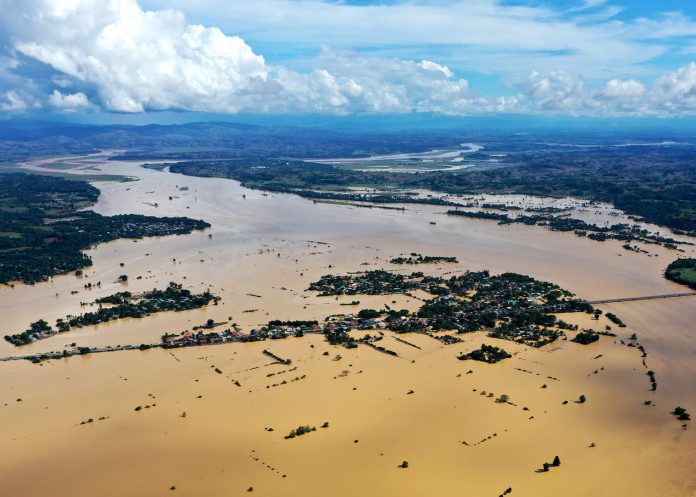Greenpeace Philippines in Tuesday renewed its call for “urgent climate action” following the release on Monday of the latest report from the Intergovernmental Panel on Climate Change (IPCC).
The Working Group II report of the IPCC is “the most comprehensive assessment to date” regarding climate impacts, adaptation, and vulnerability, said Greenpeace in its statement.
“The report lays out, in sobering detail, how severe the impacts of climate change already are, causing widespread losses and damages to people and ecosystems around the world, projected to escalate with every bit of further warming,” said the pro-environment group.
It noted that since the previous assessment, climate risks are “appearing faster and will get more severe sooner.”
The report finds that mortality from floods, drought, and storms was a staggering 15 times higher in highly vulnerable regions during the last decade, compared to regions with very low vulnerability.
The report also acknowledges the crucial importance of fighting the interconnected climate and nature crisis together.
“Inaction, or even half-hearted action, is no longer an option for the next president of the Philippines,” said Greenpeace campaigner Virginia Benosa-Llorin.
“The report says that the risks are far greater than originally thought. And the reality is that, even as we have tried to cope, we are still not prepared,” she added.
She cited the need “to start asking our future leaders what they plan to do during the six years allotted to them at this crucial juncture when the climate crisis urgently needs to be addressed.”
“Without urgency, and without a bold, coherent plan of action, Filipinos stand to lose more loved ones, homes, and livelihoods,” she added.
In Asia, IPCC identified key risks as:
- Urban infrastructure damage and impacts on human well-being and health due to flooding, especially in coastal cities and settlements
- Biodiversity loss and habitat shifts as well as associated disruptions in dependent human systems across freshwater, land, and ocean ecosystems
- More frequent, extensive coral bleaching and subsequent coral mortality induced by ocean warming and acidification, sea-level rise, marine heatwaves and resource extraction
- Decline in coastal fishery resources due to sea-level rise, decrease in precipitation in some parts and increase in temperature
- Risk to food and water security due to increased temperature extremes, rainfall variability and drought
The report affirms that while the climate crisis will affect everyone, it will disproportionately impact those who are already vulnerable and marginalized.
Greenpeace maintains that this is a sign of deep injustices that need to be urgently fixed, both at the local and global levels.
“Those who have caused this problem the most must be held accountable for the damage they have caused, and for preventing any future harm, loss and damage to those in vulnerable conditions,” read the group’s statement.
“Climate justice needs to be front and center of the policy agenda of the next administration, especially as the report is telling us that we need to prepare for the worst,” it added.
“We need to ensure robust, inclusive, sufficiently resourced plans on adaptation and climate-resilient development that meet the needs of the most vulnerable, as well as ambitious mitigation action plans that would keep us within 1.5C, and save lives and our planet’s health,” said Llorin.
The latest IPCC report noted that the cumulative scientific evidence is “unequivocal,” saying that “climate change is a threat to human well-being and planetary health.”
“Any further delay in concerted anticipatory global action on adaptation and mitigation will miss a brief and rapidly closing window of opportunity to secure a liveable and sustainable future for all,” said the report.
The Intergovernmental Panel on Climate Change or IPCC is an intergovernmental body of the United Nations responsible for advancing knowledge on human-induced climate change.









